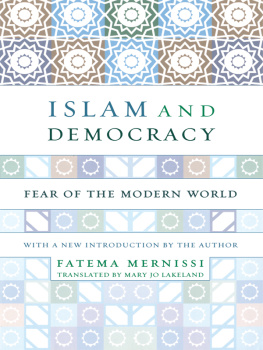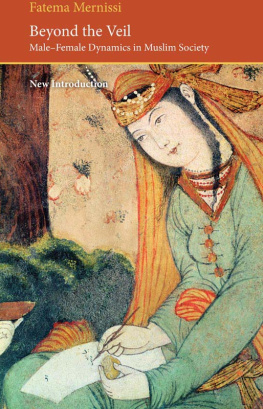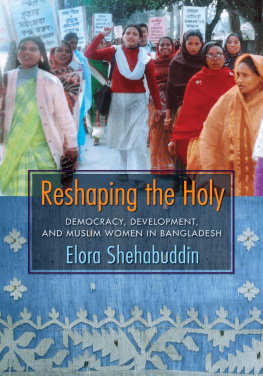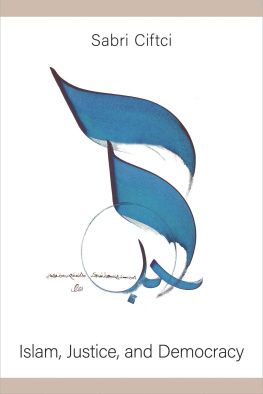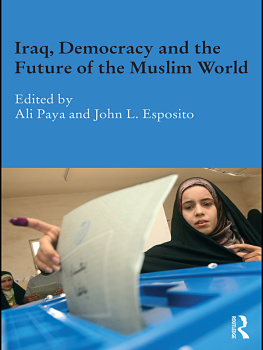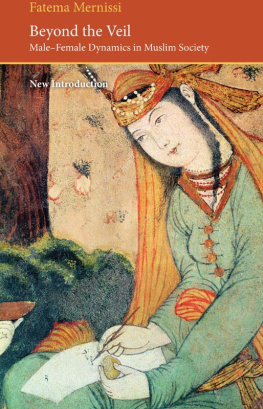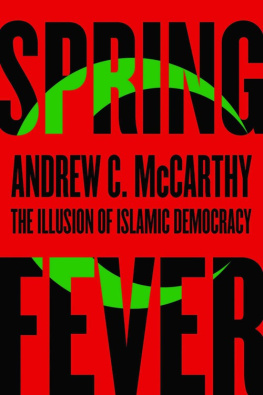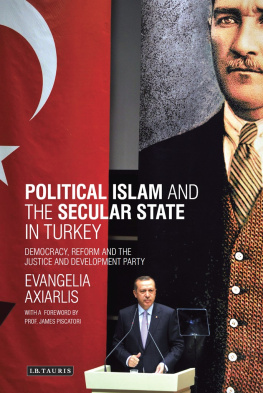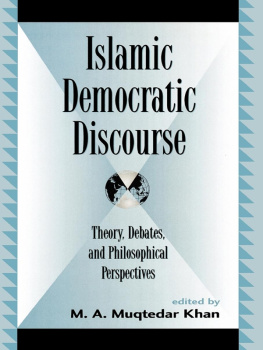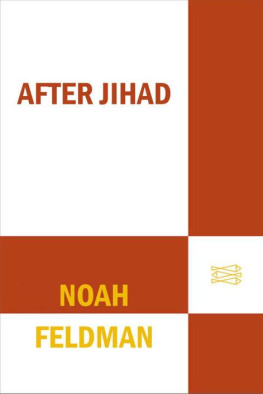Mernissi is one of the most refreshing voices in the emerging feminism of Muslim women.
San Francisco Chronicle
Fatema Mernissi has more ideas per book than any other thinker in the Middle East. Her later works increasingly integrate her brilliant ideas into sustained and compelling discourse that is very worthy of attention.
Laurence O. Michalak,
Center for Middle Eastern Studies,
University of California, Berkeley
Fatema Mernissi has taken a steady, sustained look into the Muslim heart and emerged with brilliant insights into its fears of the West and of democracy, as well as its love-hate relationship toward its past. She is a psychiatrist of her culture, with understanding for the problems and with courage to move ahead. This is must reading for readers of the West and Middle East alike.
Arlie Russell Hochschild,
Professor of Sociology,
University of California, Berkeley
Author of The Second Shift
The author of five books on Islam admired for their original and scrupulous research, Mernissi is regarded by many as the pre-eminent Koranic scholar of our time.
Vanity Fair
Islam and Democracy
Other Books by Fatema Mernissi
The Veil and the Male Elite:
A Feminist Interpretation of Womens Rights in Islam
Doing Daily Battle: Interviews with Moroccan Women
Beyond the Veil: Male/Female Dynamics in Modern Muslim Society
Islam
and
Democracy
Fear of the
Modern World
FATEMA MERNISSI
TRANSLATED BY
MARY JO LAKELAND
Many of the designations used by manufacturers and sellers to distinguish their products are claimed as trademarks. Where those designations appear in this book, and where Basic Books was aware of a trademark claim, the designations have been printed in initial capital letters.
English Translation Copyright 1992 by Perseus Publishing
Introduction to the Second Edition Copyright 2002 by Fatema Mernissi
Previously published by Perseus Publishing
Published by Basic Books, A Member of the Perseus Books Group
All rights reserved. No part of this publication may be reproduced, stored in a retrieval system, or transmitted, in any form or by any means, electronic, mechanical, photocopying, recording, or otherwise, without the prior written permission of the publisher. Printed in the United States of America.
Cataloging-in-Publication Data is available from the Library of Congress
ISBN-10: 0-7382-0745-4 ISBN-13: 978-0-7382-0745-2
eBook ISBN: 9780786731008
Find us on the World Wide Web at http://www.basicbooks.com
Books published by Basic Books are available at special discounts for bulk purchases in the U.S. by corporations, institutions, and other organizations. For more information, please contact the Special Markets Department at the Perseus Books Group, 11 Cambridge Center, Cambridge, MA 02142, or call (800) 255-1514 or (617) 252-5298.
Set in 11point Bembo by Shepfard Poorman Communications, Inc.
Introduction to the Second Edition
The Emperors New Frontier: Only If Civility Has No Border Would Terrorism Vanish
Like most Arabs I see daily in my Rabat Muhammad V University neighborhood, I was terrified by the September 11 attack. But why are we so terrified? I kept asking with the hysterical edge characteristic of menopausal Arab women, who, unlike men, have the privilege of acting out their fears in public.
On November 11, Brahim screamed at me, Mernissi, stop interrogating us! Brahim, who owns the newspaper store in this university area where my colleagues flock to buy papers and hear the latest rumors, has known me since I came to Rabat as a student forty years ago. Youve slowed down my business with your hysterical questions for two months! he went on. I was shocked by Brahims sudden impatience, not only because he usually is so supportive but also because he was giving my sneaky colleagues (who had already nicknamed me Lsika [Little glue] because of my constant questioning) another opportunity to laugh at me.
You asked Karim, my polite assistant, and me a hundred times, Brahim continued, why we are so scared by the attacks on New York and Washington. I repeated a hundred times that it reawakened the Gulf War terror: the killing of innocents. In 1991 innocent Iraqis were killed by American bombs in Baghdad, and in 2001 innocent Americans were killed by terrorists in New York and Washington. But you did not stop bombarding me with questions! Brahim suddenly looked very tired. And you know, Mernissi, how all this upsets me. I feel insulted when Americans say that the terrorists are Muslims. How come Americans never heard of Allahs order: You shall not kill each other. Allah is merciful It upsets me that this peaceful Islam is not common knowledge.
I have always been impressed by Brahim, in his sixties like me, and his ease in recalling our childhood education in Koranic schools, humanist Islam. I empathized with his feelings of helplessness. He carried on after few minutes, in a softer voice, as if talking to himself. How come Americans are not informed that Muhammad, the Prophet of Islam, declared security for Jews in his first Constitution of Medina as part of the Muslim citys founding principle of global responsibility: A Jew who follows us has [a right to] the same help and support [as the believers], so long as they are not wronged [by him] and he does not help [others] against them? By god, Mernissi, I tried to calm your anxiety by invoking our peaceful tradition, but you never stopped bugging me and Karim. After all, your job as a professor is not to scare us more by exhibiting your own fears but to help disoriented youth identify pragmatic tasks that will foster peace.
An unusual silence followed in the normally noisy newspaper store. Everyone expected me to react to Brahims public attack by screaming louder than he did (to restore my public image"), but I did not. Actually, I could not because his last remark, about my failure to focus on peace-weaving, made me feel ashamed of myself. I felt ashamed to feel so helpless about focusing on a tiny but practical initiative to stop the cycle of terror started by the September 11 deaths of innocents in the United States and continuing with the bombing of unarmed civilians in Afghanistan. I left the store and was walking toward the Cafe Ouazzani, where I usually stop for a mint tea, when I heard footsteps behind me. It was Karim, Brahims shy assistant.
Ustada [Professor], I am sorry my boss was so abrupt. He is nervous about the bombs in Afghanistan. He is convinced that only nonviolence can defeat terrorists, Karim mumbled as insecure kids do when they are about to say something important. He was wearing his generations new traditional outfit: blue jeans, a white T-shirt, and fake Medina-made Nikes. When I invited him to join me for a tea, he added, I wish I could advise Mr. Colin Powell.
In the past I would have laughed at his fancy, but things were not normal. The mere idea that a twenty-five-year-old Arab felt like giving advice to Mr. Powell, one of the most powerful Western military leaders on the planet, struck me as a totally new cultural attitude. However, since September 11Ihave discovered that Arab youth and my generation do not live on the same planet. I would never have thought of giving advice to General de Gaulle, the superboss of colonial North Africa, when I was an adolescent. Arabs like me, born in the 1940s, when the colonizers industrial technology was so awe- inspiring that it seemed magic, could hardly even imagine General de Gaulle as real.

